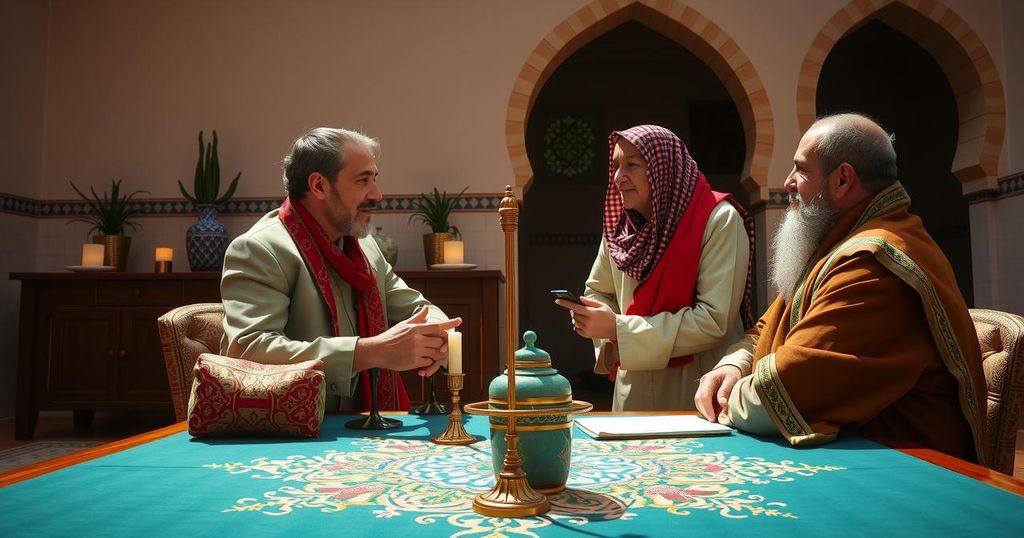Libyan Rival Factions Convene in Morocco to Resolve Political Standoff

Rival Libyan factions have resumed discussions in Morocco aimed at resolving a political deadlock. The negotiations involve the High Council of State and the House of Representatives, addressing ongoing division since the 2011 uprising. Morocco’s Foreign Minister called for cooperative efforts to ensure Libya’s unity and credible elections, following a stalled political process since the failed December 2021 election.
Delegations from opposing Libyan institutions have reconvened in Morocco with the objective of resolving an entrenched political stalemate and averting a potential resurgence of turmoil. The dialogue, held in Bouznika, involves representatives from the High Council of State in Tripoli and the House of Representatives in Benghazi, reflecting the longstanding division between Libya’s eastern and western regions stemming from the aftermath of the 2011 NATO-backed uprising that ousted Muammar Qaddafi.
During the opening remarks, Moroccan Foreign Minister Nasser Bourita emphasized the necessity for collaborative efforts among the parties to safeguard Libya’s integrity and to lay the groundwork for credible elections. He remarked, “The numerous international and regional conferences on Libya will not replace the inter-Libyan dialogue which has credibility and ownership.”
The political processes aimed at reconciling years of division, violence, and instability have been hindered since a planned election in December 2021 was derailed due to disputes over candidate eligibility. The House of Representatives, established in 2014, was originally intended to facilitate a political transition, but its recent actions in appointing a rival government have further entrenched Libya’s bifurcation. Furthermore, the 2015 Libyan Political Agreement, which established the High State Council as a consultative body, has been undermined by the House’s unilateral decisions, exacerbating existing tensions between the east and west.
Libya has been in a state of protracted geopolitical turmoil since the fall of Muammar Qaddafi in 2011, following which the country has fragmented into competing administrations. The 2014 outbreak of governmental division has manifested in a power struggle primarily between two legislative bodies: the House of Representatives based in Benghazi and the High Council of State located in Tripoli. Efforts to stabilize the nation and cultivate a functional political environment came to a faltering halt when a highly anticipated electoral process failed to materialize in late 2021, resulting in heightened frustrations and a call for renewed inter-Libyan dialogue.
In summary, the resumed talks in Morocco represent a crucial step towards potentially bridging the longstanding divide in Libya. With a focus on revitalizing the political process and preventing further chaos, the engagement between the rival factions not only emphasizes the need for credible elections but also highlights the importance of inter-Libyan dialogue as a means to achieve sustainable peace. While the path ahead remains complex and challenging, there remains hope for a resolution to Libya’s political impasse.
Original Source: www.arabnews.com







